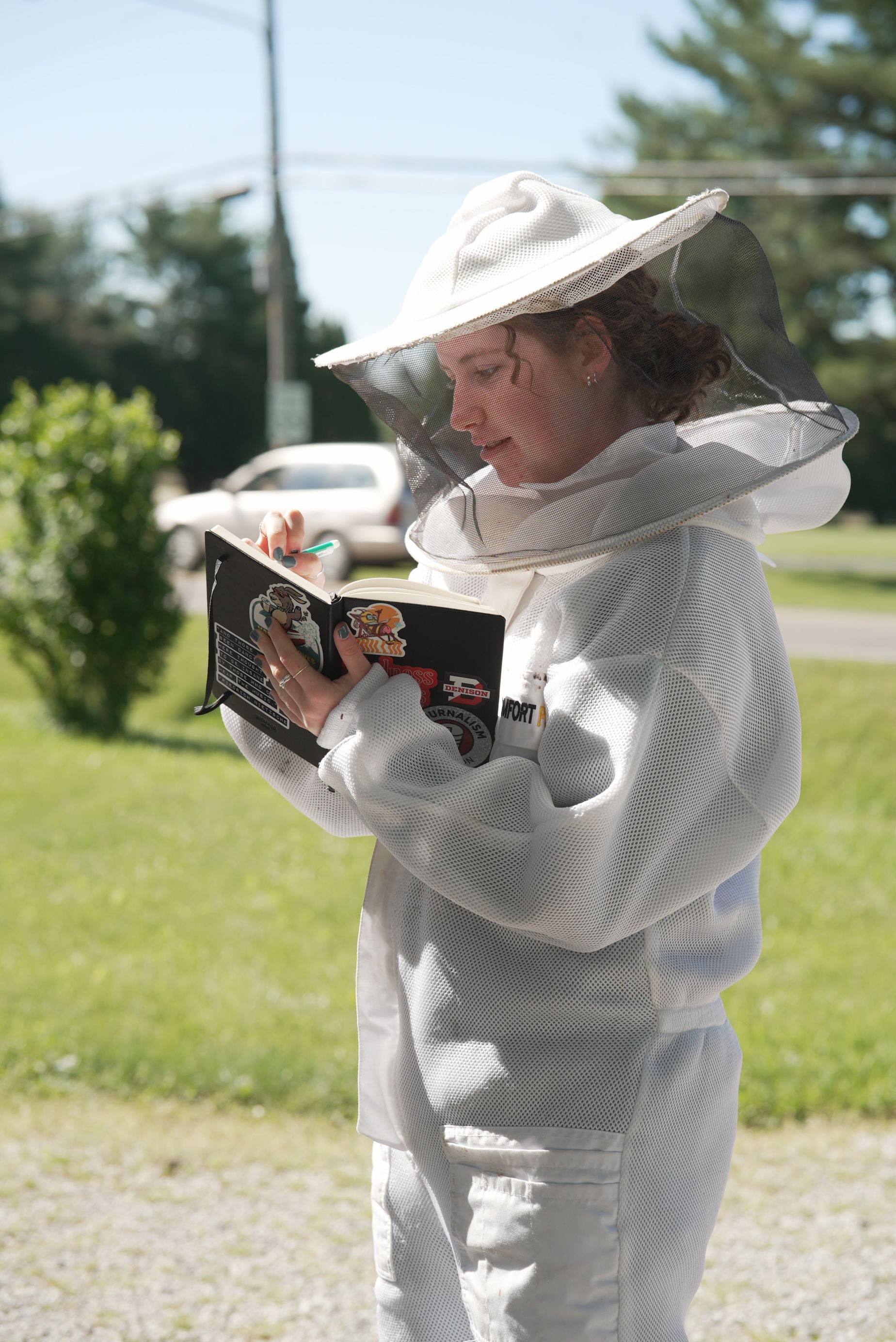THE BEEKEEPERS
of LICKING COUNTY
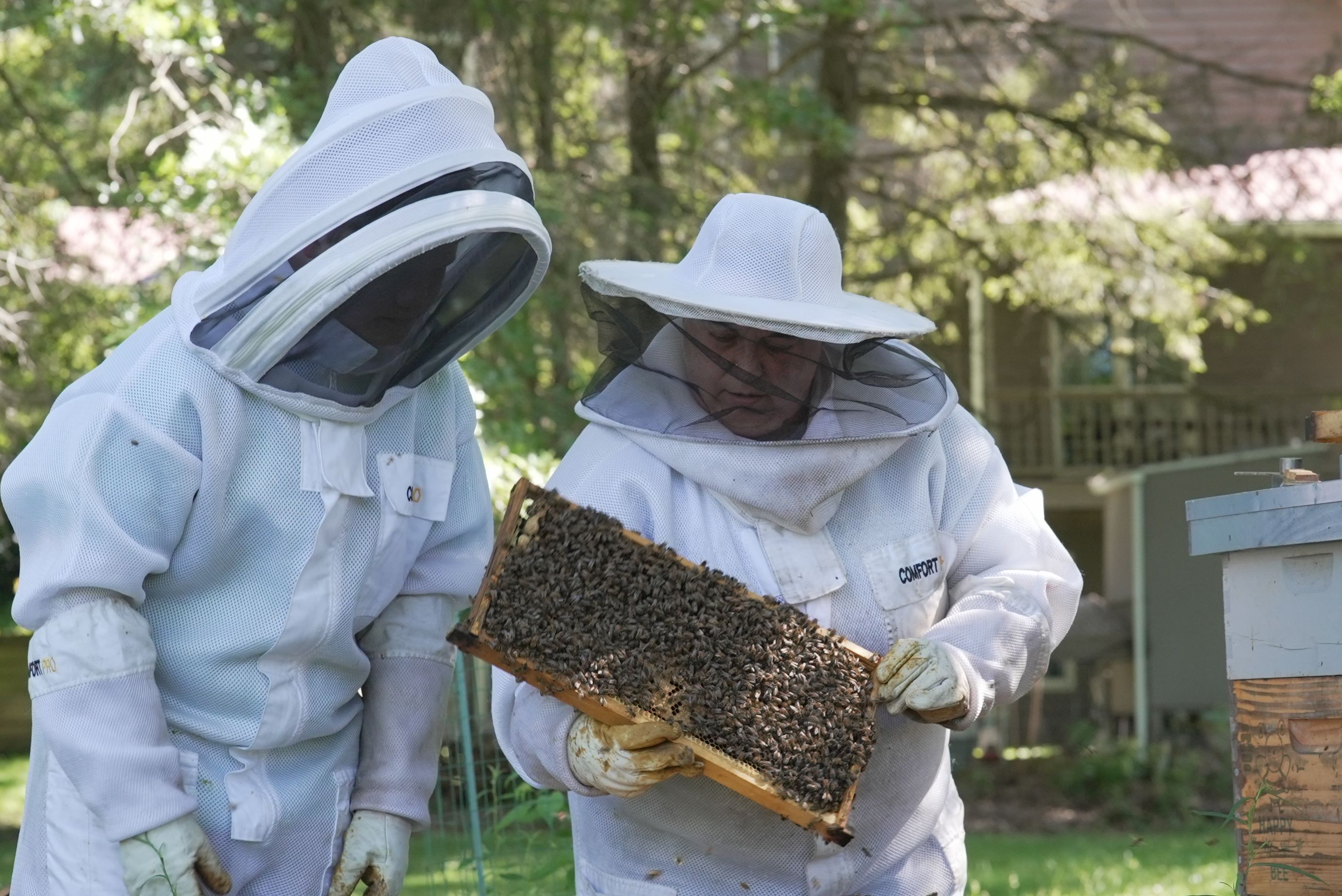
What do two retirees, a director of admissions, and a middle schooler all have in common?
Bees.
They all are a part of the East Central Ohio Beekeepers Association, or ECOBA. ECOBA is a non-profit organization focused on sharing knowledge and educating beekeepers ranging from hobbyists to professionals.
On the third Thursday of the month, in a back room of Taft Reserve South, a nature reserve in Newark, they bring in experts to speak on topics ranging from making lip balm from beeswax to mitigating mites in your hive.
After the meeting of 60-100 people, the crowd-favorite potluck begins. A long table sits at the back of the room, covered in a rainbow of slow cookers and mismatched tupperware. Among the tables, bee related problems are solved and friendships are made.
In addition to the monthly meeting, ECOBA offers “bee school” to teach novices the basics of beekeeping. They also have beeyards, a hands on look at ECOBAs bee hives and a chance to compare them to your own. Finally, they do a children's scholarship program, for kids ages nine through 17, to give them all the resources they need to get into beekeeping, including a mentor.
Phil Nestor, the president of ECOBA said, “we are just a group of people that love to keep bees and share a lot of knowledge.”
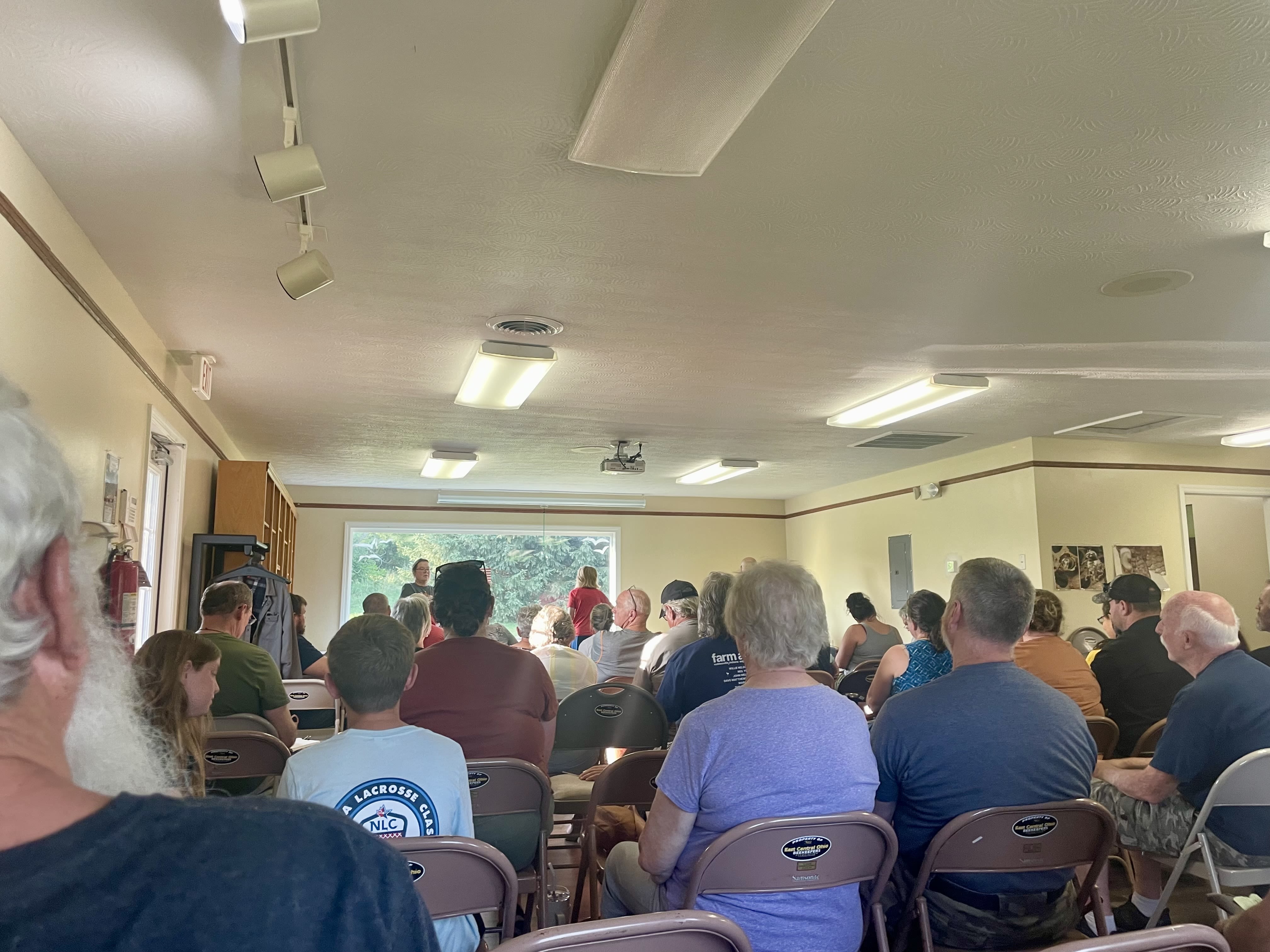
Keegan Andrews-Gartner
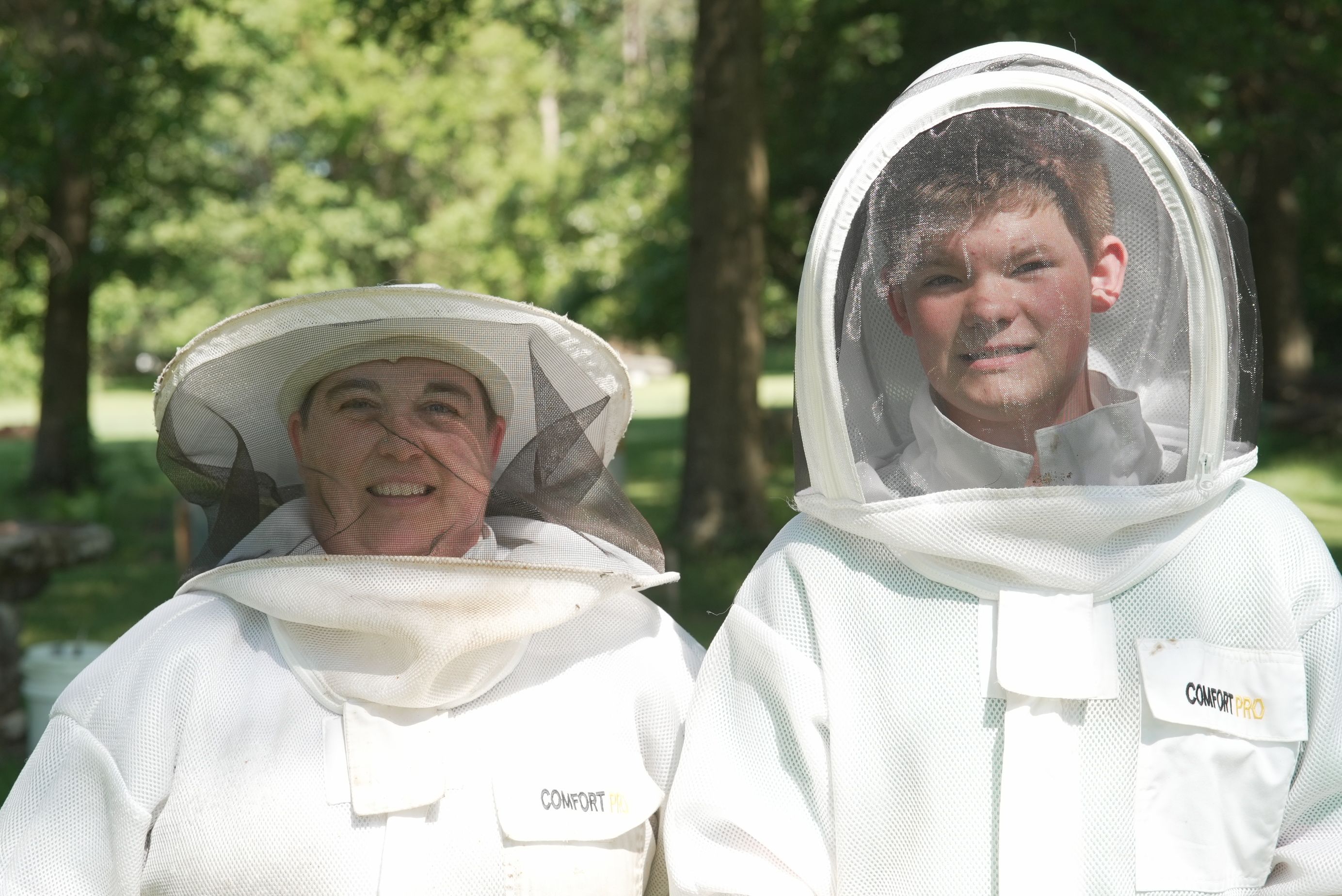
Keegan Andrews-Gartner, of Newark, didn’t always know he wanted to be a beekeeper. When he was 6 years old, he saw an East Central Ohio Beekeepers Association booth at the Hartford County Fair and begged his moms to let him apply for one of the ECOBA scholarships.
Every year, at the county fair, Keegan would ask. And every year his mom, Amanda Andrews, would have to give him the same answer: You aren’t old enough.
Until 2020, when Keegan turned 9.
Officially, he was old enough to apply for the scholarship. So, he did.
And he got it.
“We thought he was never going to get the scholarship,” said Amanda, “but they called us, and it was kind of a no brainer. … We didn’t know what we were getting ourselves into.”
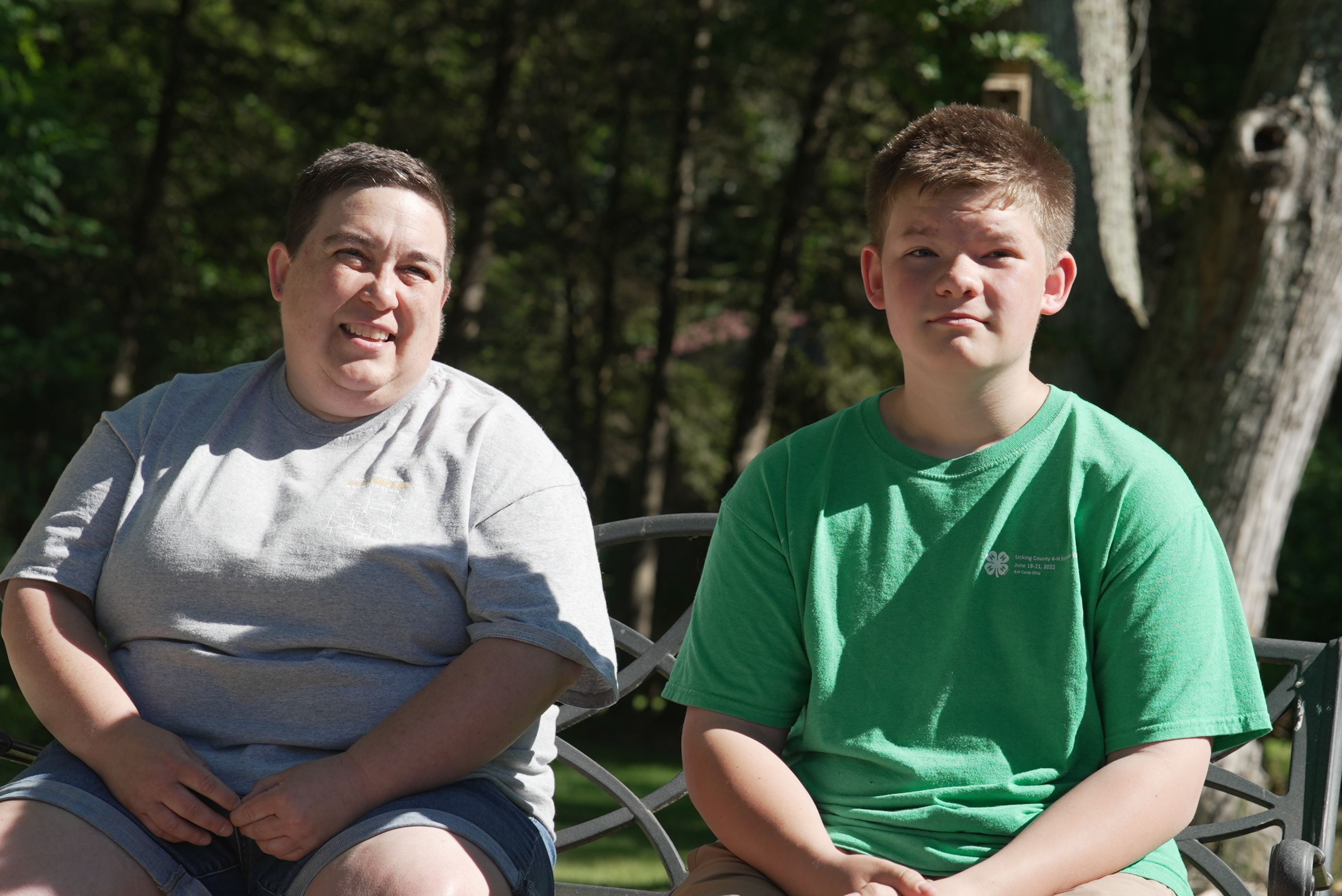
Keegan Andrews-Gartner (right) and his mom Amanda Andrews. Photo by Andrew Theophilus
Keegan Andrews-Gartner (right) and his mom Amanda Andrews. Photo by Andrew Theophilus
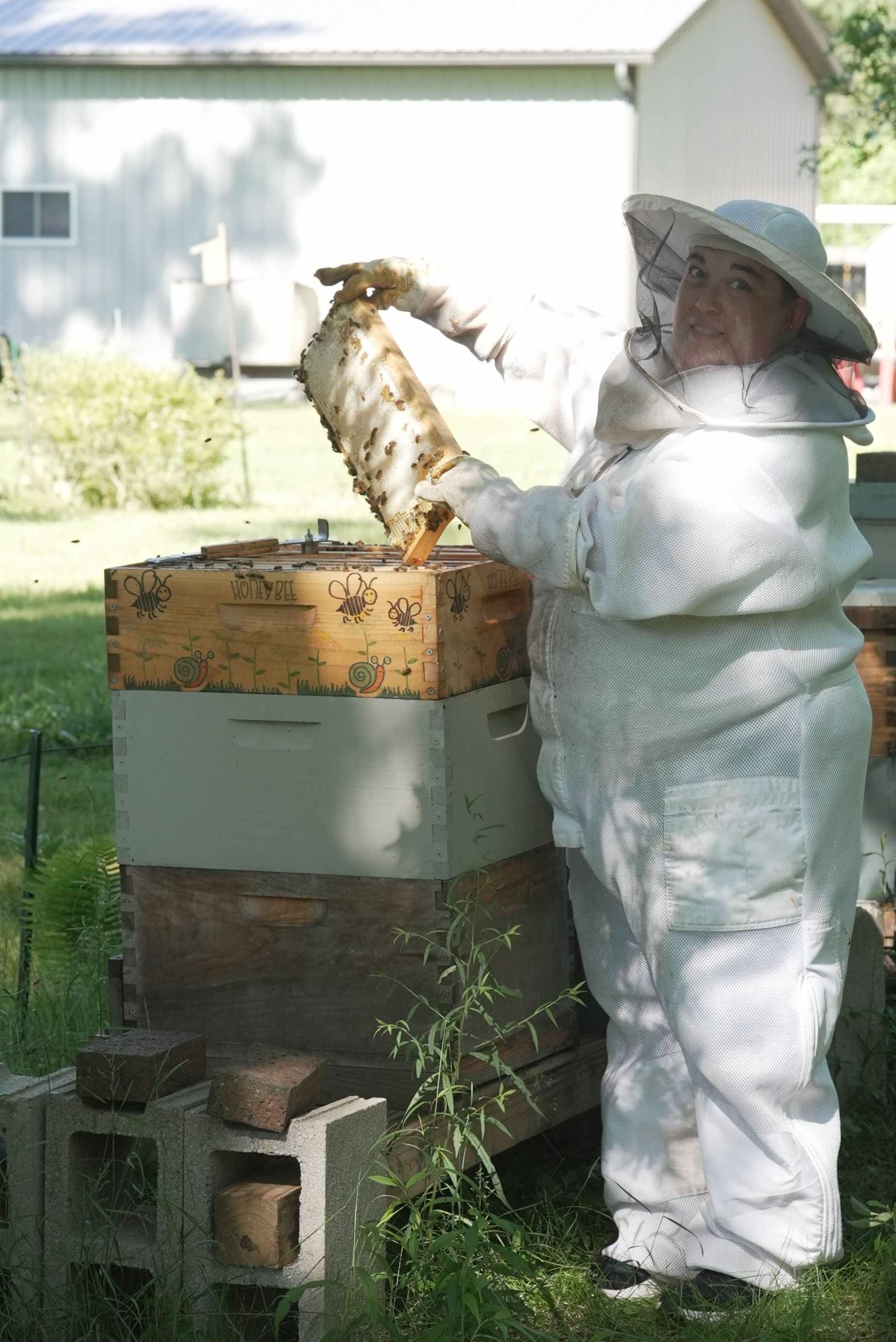
Photo by Andrew Theophilus
Photo by Andrew Theophilus
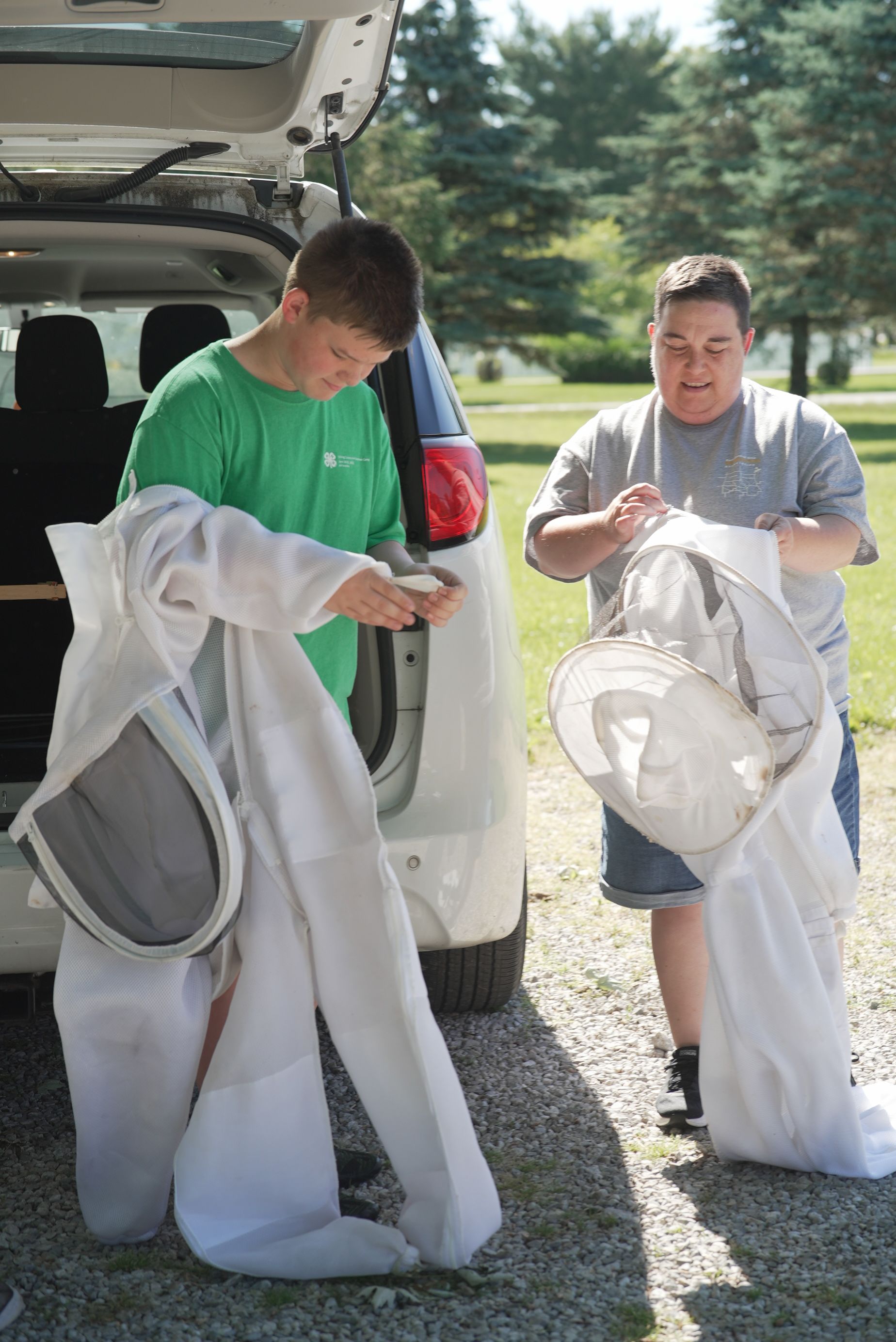
Photo by Andrew Theophilus
Photo by Andrew Theophilus
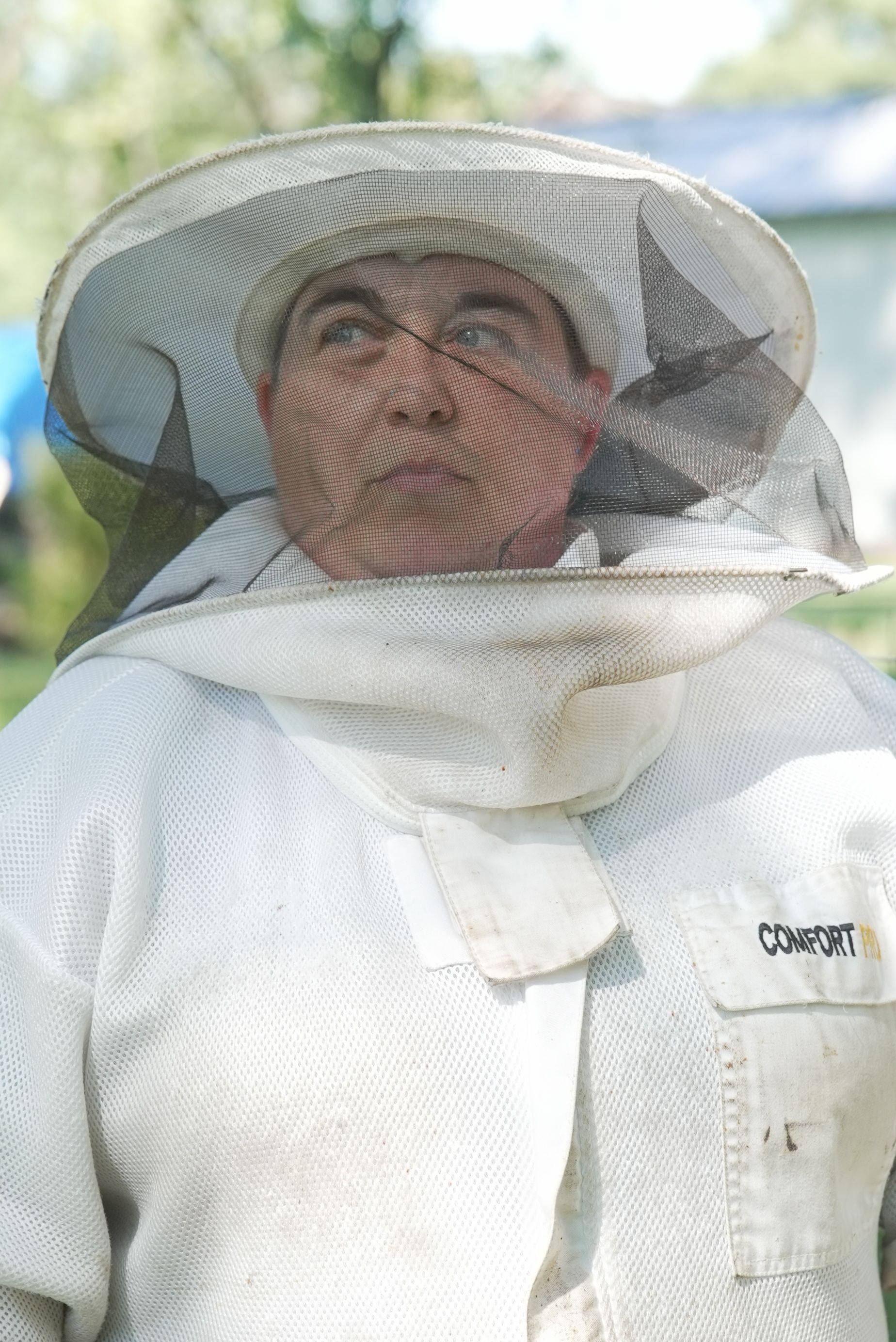
Photo by Andrew Theophilus
Photo by Andrew Theophilus
In the blink of an eye, after a full day of ECOBA “bee school,” full body cotton suits became their outfits of choice and there were bees living in Keegans grandma's living room.
Today, their eight hives are split between their backyard and a friends. The wooden boxes are lovingly painted with little honeybees and flowers on the sides. Walking up to the hives, it is hard to know they are even there, until you look to the sky, where bees fly free in droves. Covered from head to toe in gear, Keegan and Amanda approach the hives hauling a little red wagon behind them, full of extra honeycomb frames and boxes.
Keegan is in charge of lighting the wood chips on fire, and manning the smoker. Puffing little clouds of smoke at the top of the box, Keegan sends the bees burrowing into the lower boxes of their hive, while Amanda pries the lid of the hive off with a hook end hive tool. Bees cover every inch of the frames, as she slowly lifts the frames from the box. So many that Amanda scoops some off with her gloved hand.
Neither Amanda nor Keegan even flinch at the sight of thousands of bees in her hand.
In early June, the pair were preparing for honey harvesting season, which meant adding more frames to the hives to give the bees more space to build combs. The two work methodically, steady hands and confident movements, with thousands of helpers surrounding them on every side.
Last year, with only two hives to harvest from, Keegan estimates they got about 30 pounds of honey. They sold their liquid gold by the jar to friends, family, and neighbors.
Depending on where the bees found the pollen, the honey changes flavor each year. But without fail, the fruit of their labor is sweet and always in demand.
This year, with eight hives, the pair is hoping for almost 100 pounds. They are going to need more jars.
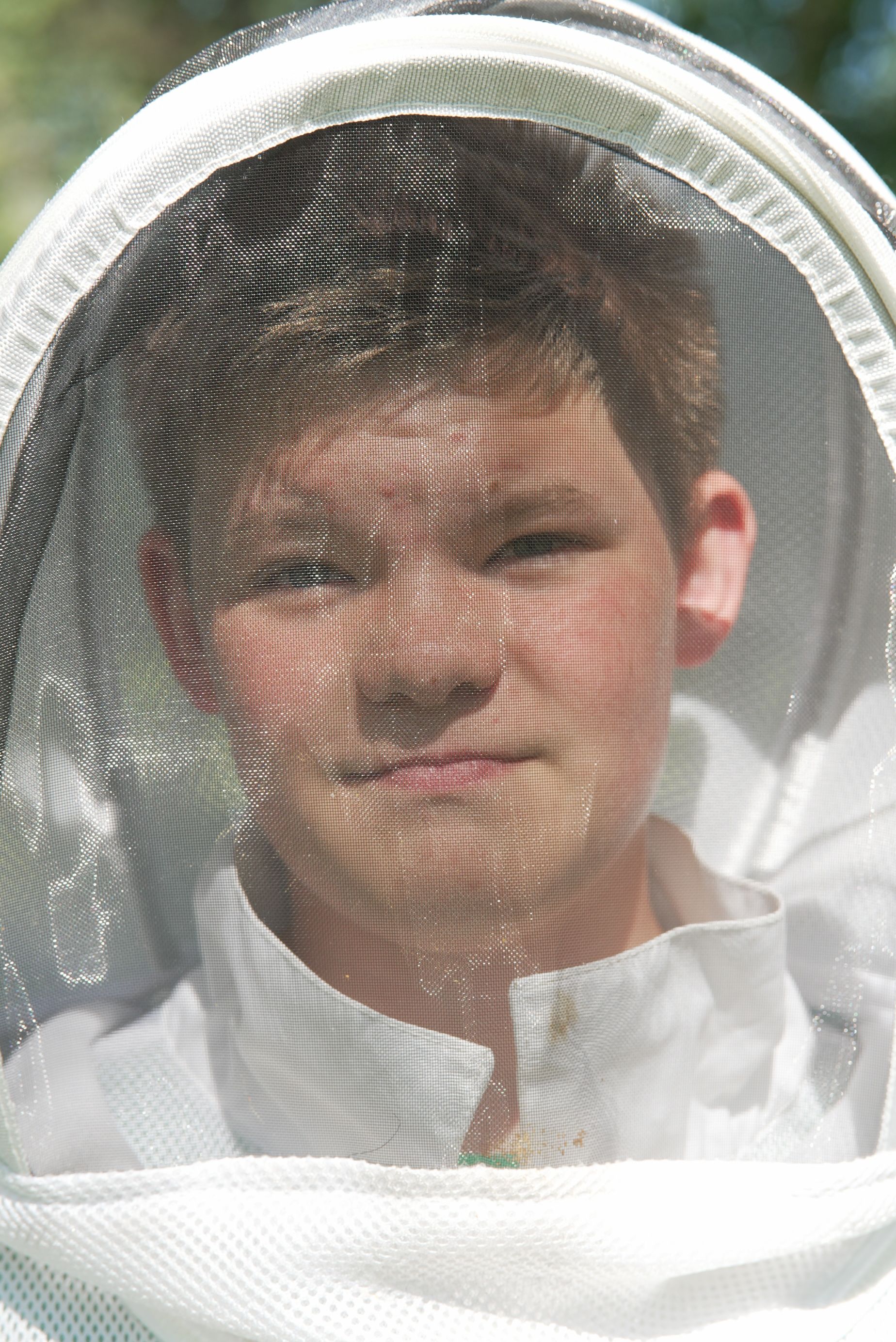
Photo by Andrew Theophilus
Photo by Andrew Theophilus
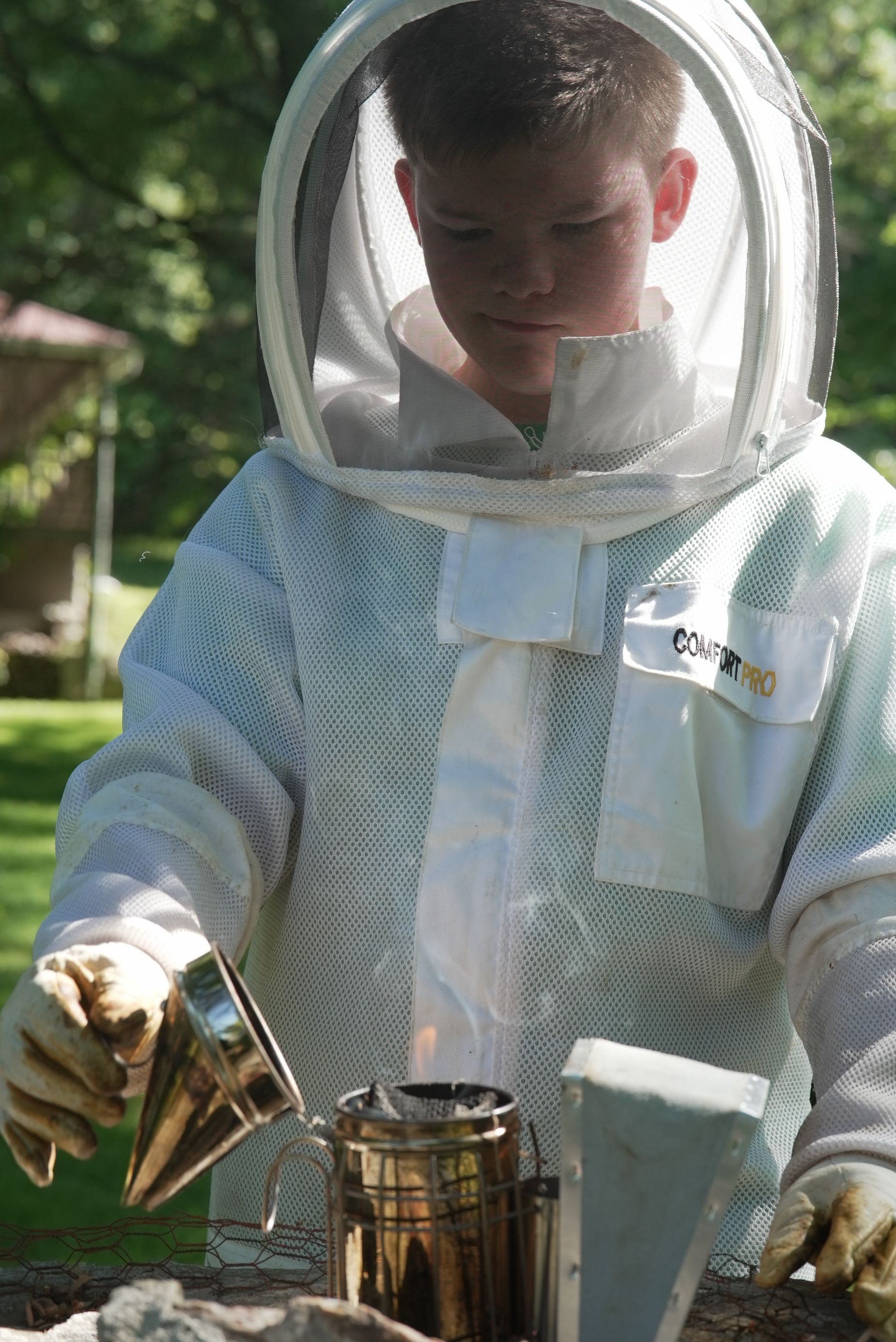
Photo by Andrew Theophilus
Photo by Andrew Theophilus
Larry Gamble and
Will Harris
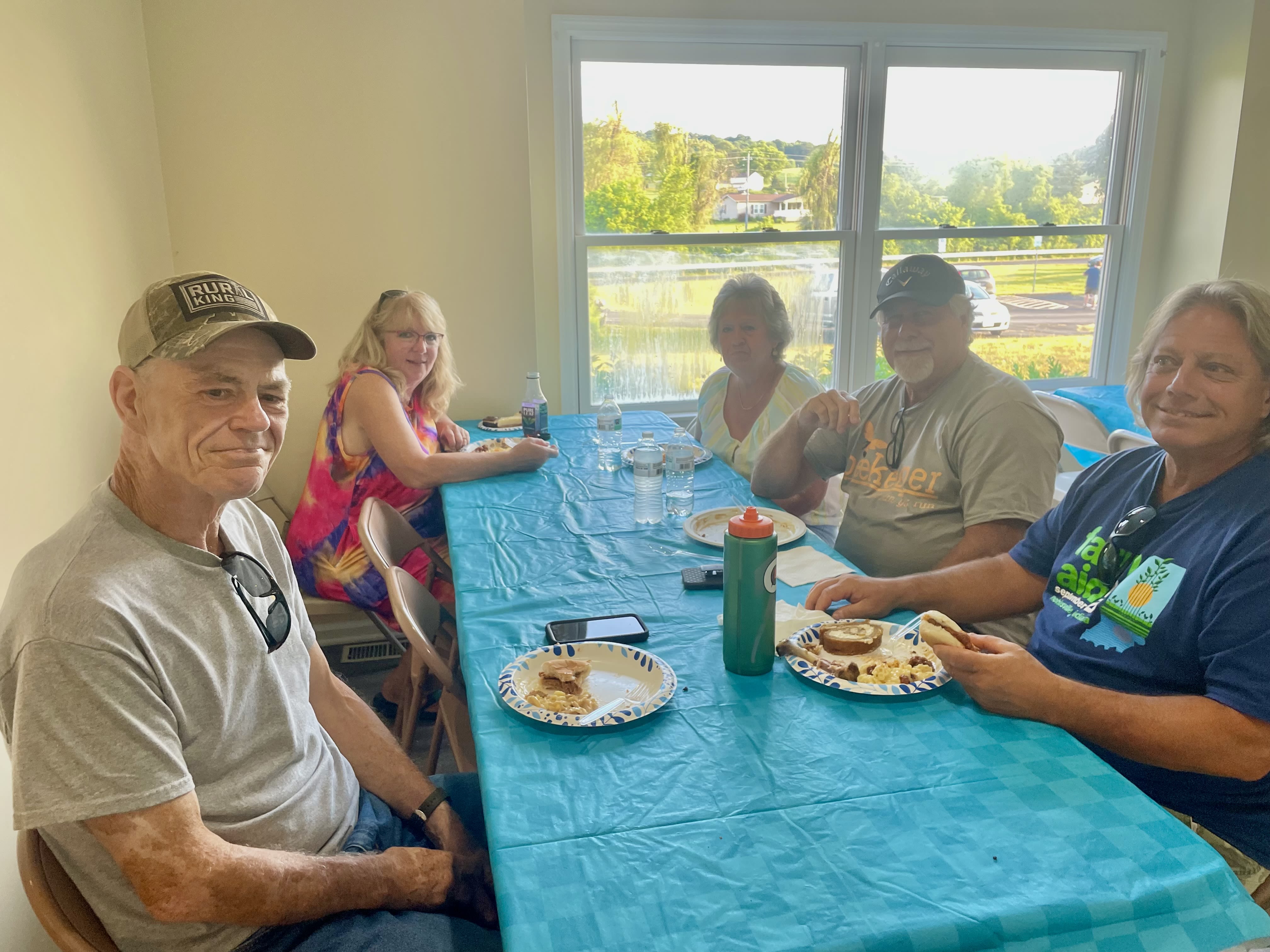
On the other side of the elusive beekeeping scholarships are the mentors. There with lifetimes of experience, Larry Gamble and Will Harris have handed out their information to the next generation of beekeepers for many years.
When Will Harris, 70, of Hebron, retired from a career as a commercial diver 13 years ago, he was in need of a hobby. When Gamble, 69, retired from working for the City of Zanesville 12 years ago, he, too, needed something to keep him out of trouble.
And by a wave of a magic wand, or out of desperation for an activity, they both found beekeeping.
Gamble, a Chandlersville resident, learned the trade through ECOBA, while Harris found himself a mentor. At his age, Harris was slightly older than the typical nine to 13 year old mentee, but so was his mentor.
Mr. Ed, as Harris calls him, lives four miles away from him, and has served as a mentor for Harris as long as he has been beekeeping. Today, Mr. Ed is 95 years old, and still passing on his knowledge to Harris.
But today, Mr. Ed is not the only mentor in the lineage, as both Harris and Gamble have mentees of their own. Both mentoring kids under the age of 15, Harris and Gamble have been acting as a guidepost for the young beekeepers, there to put out any fires they may encounter in the rollercoaster that is beekeeping.
“Being a mentor … it's interesting. Real interesting,” said Harris, “but I’m a big fan.”
In the last six years, Gamble has mentored three children, including a brother and sister duo. In addition to his one-on-one mentoring duties, Gamble has taught at the beginning level beeyard for the last 10 years. Beeyard, which happens every Thursday at Taft Reserve South, is an opportunity to learn about beekeeping by getting a hands-on look at ECOBAs beehives. Mentors and more experienced members of the club, like Gamble, pass on their knowledge to adults and kids alike.
“I just love teaching people about this amazing insect,” said Gamble.
Carianne Meng
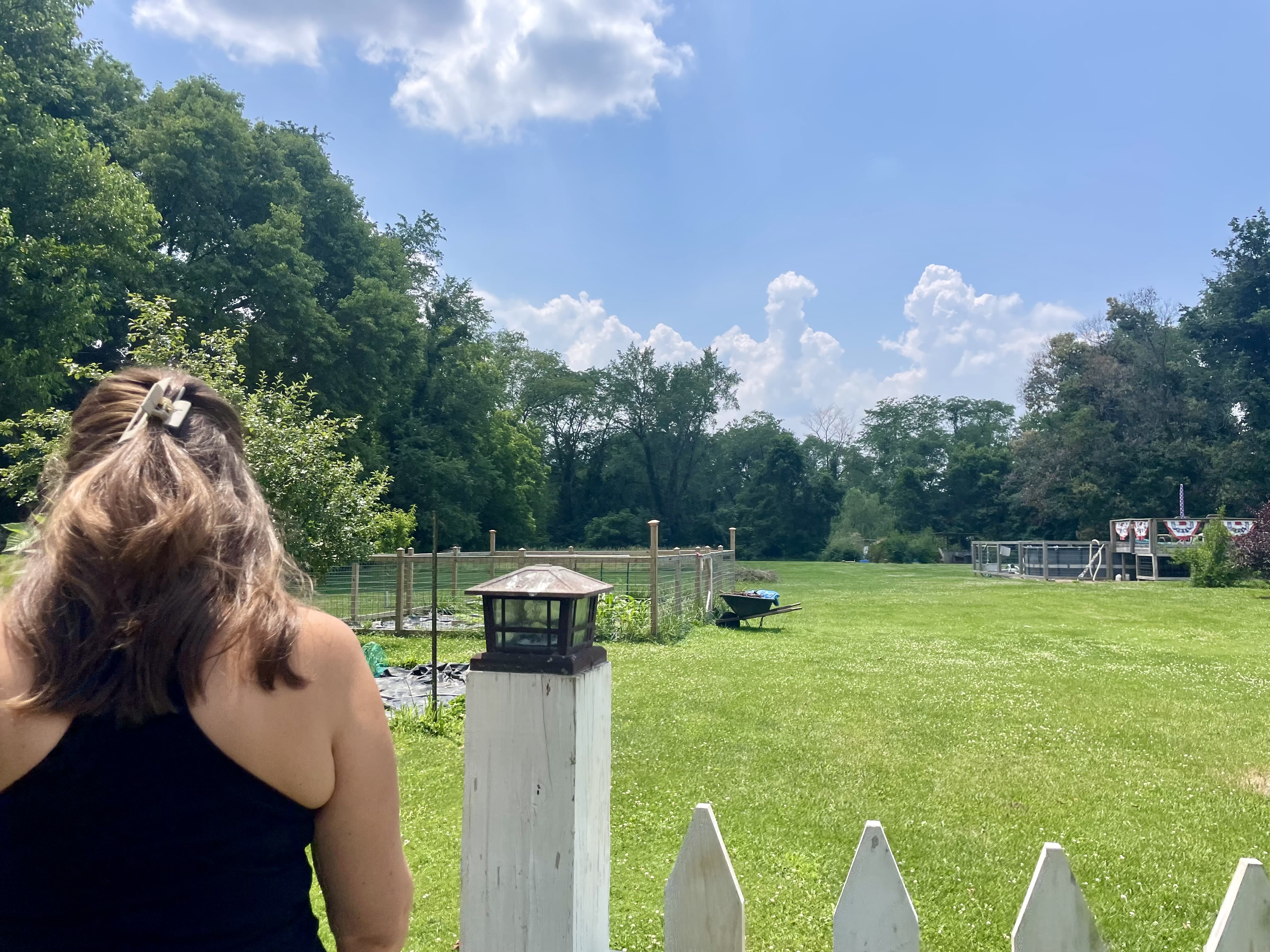
Unlike Keegan, Carrianne Meng never knew that beekeeping was in her future. But every surprise of her bee journey has been serendipitous, a dose of magic in the otherwise mundane.
In 2021, Meng, the 39-year-old associate director of admission at Denison University, and her partner moved into an old house in Alexandria. With an acre of land in the back, the possibilities were endless. Days after moving, Meng was sat next to Jeff Acuff at a local restaurant and bar.
Jeff, in classic midwestern style, asked what her plans were for the land behind the house. Before she knew it Meng heard herself say, “Oh, I want to keep bees.”
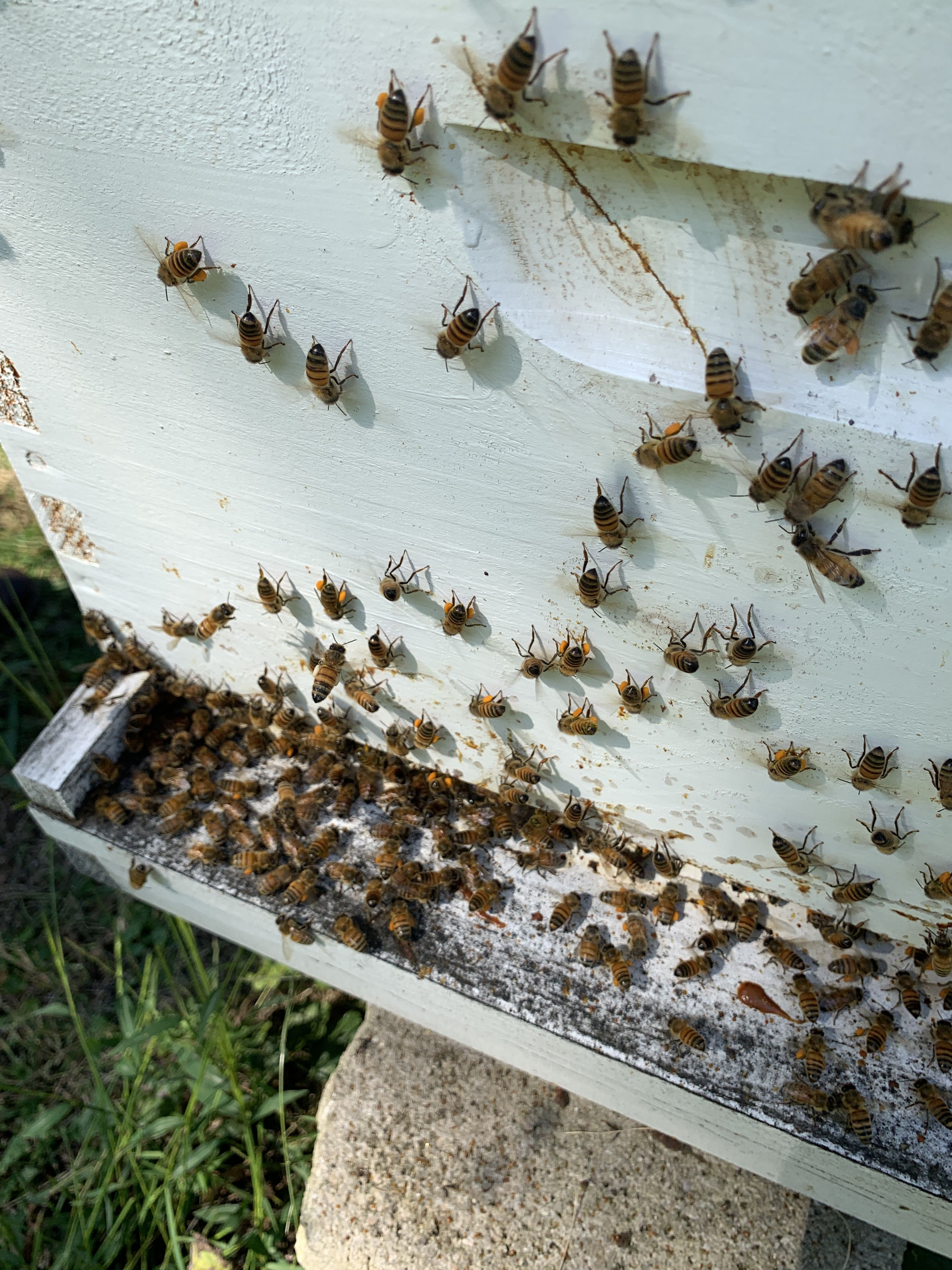
Image courtesy of Carianne Meng
Image courtesy of Carianne Meng
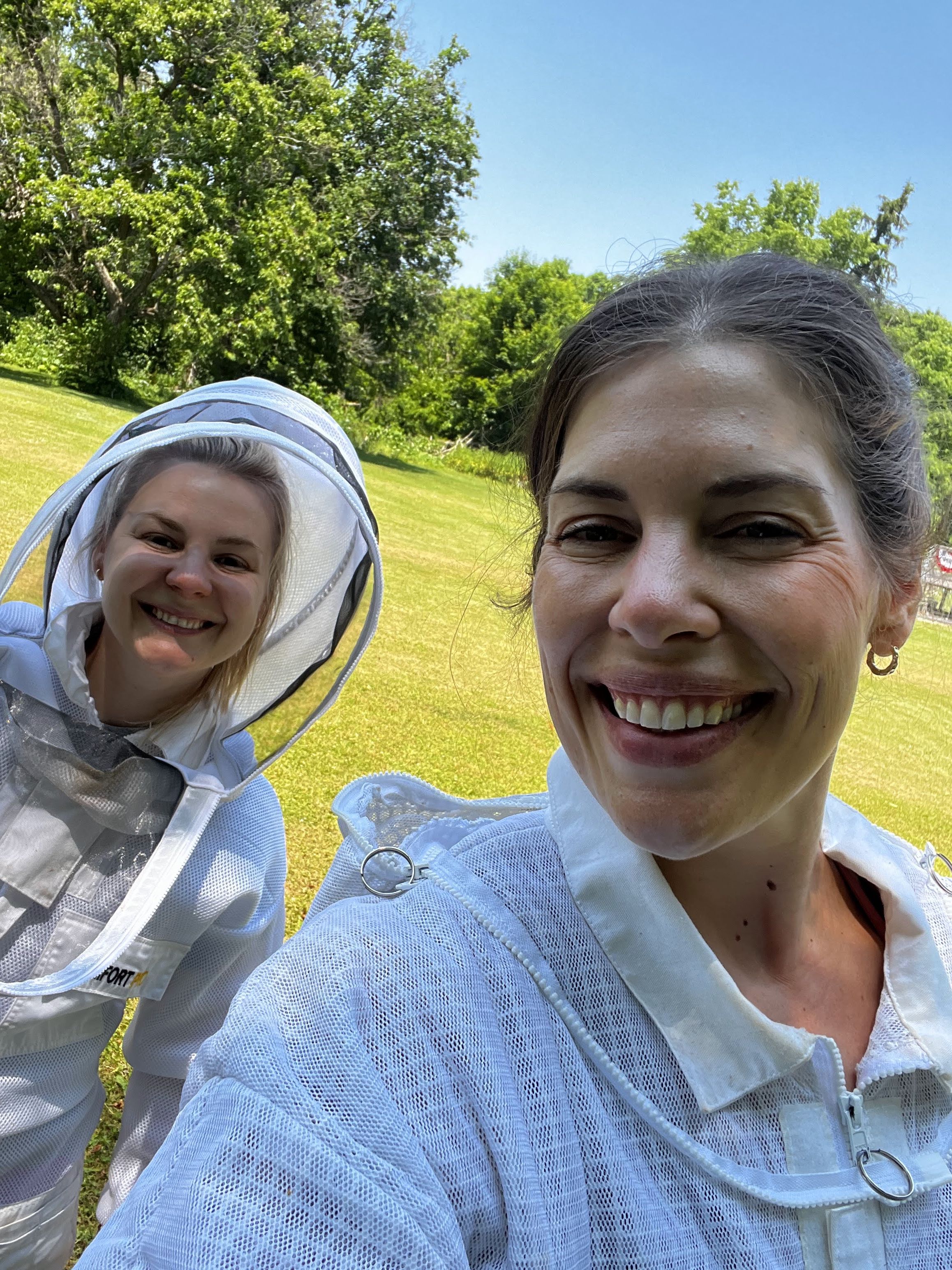
Image courtesy of Carianne Meng
Image courtesy of Carianne Meng
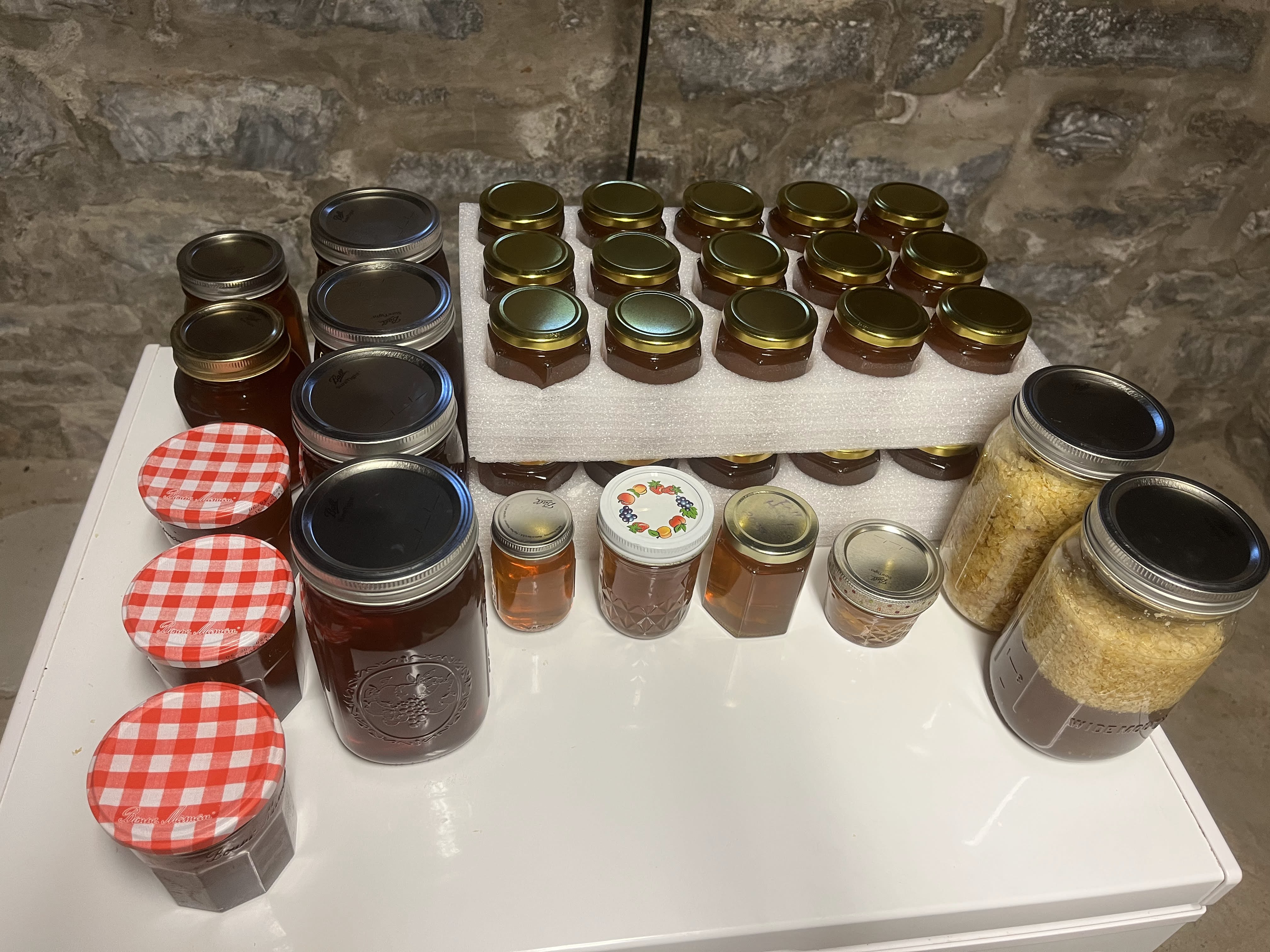
All of the honey that Meng harvested in her first year of beekeeping. Image courtesy of Carianne Meng
All of the honey that Meng harvested in her first year of beekeeping. Image courtesy of Carianne Meng
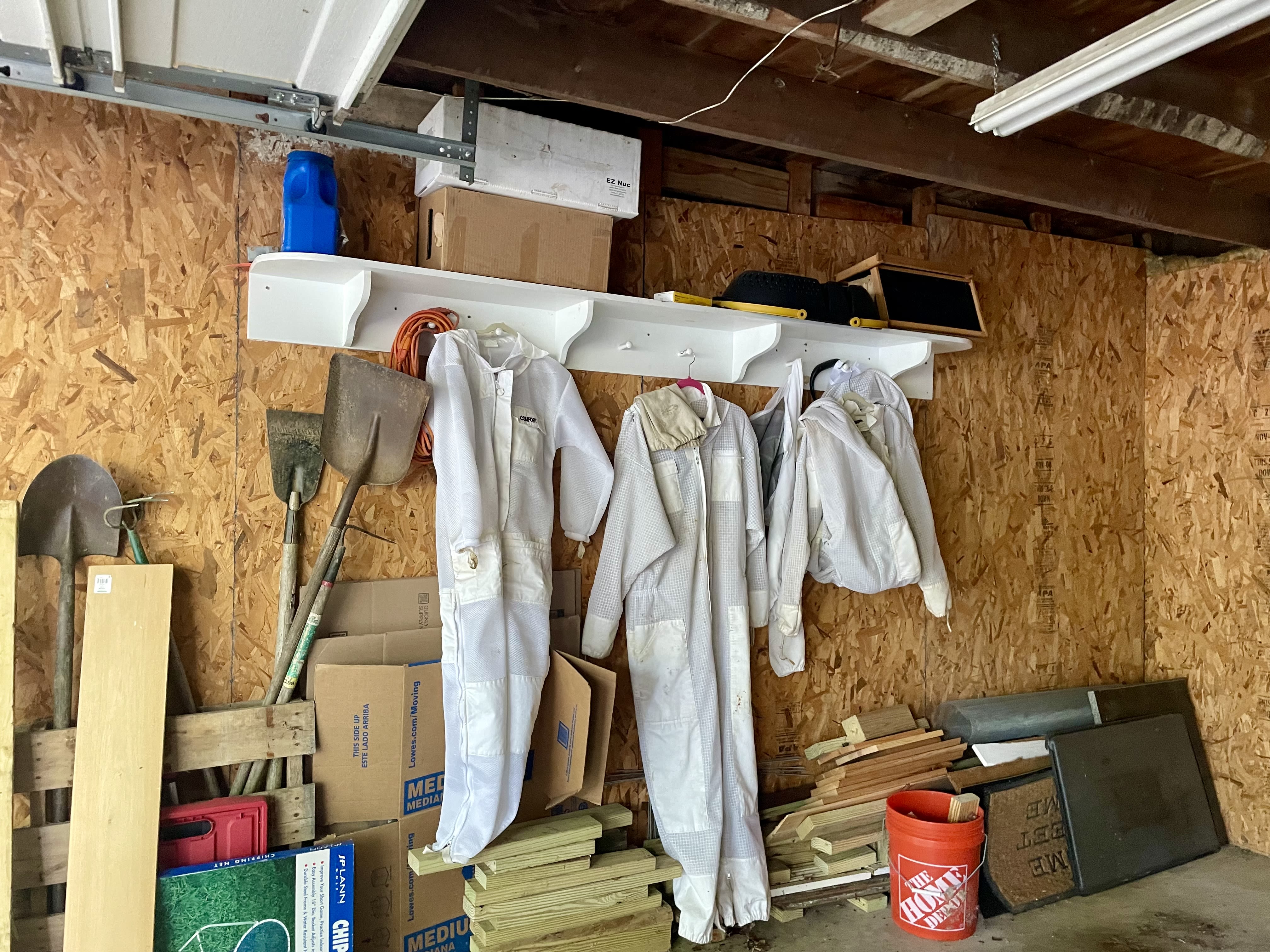
Image courtesy of Carianne Meng
Image courtesy of Carianne Meng
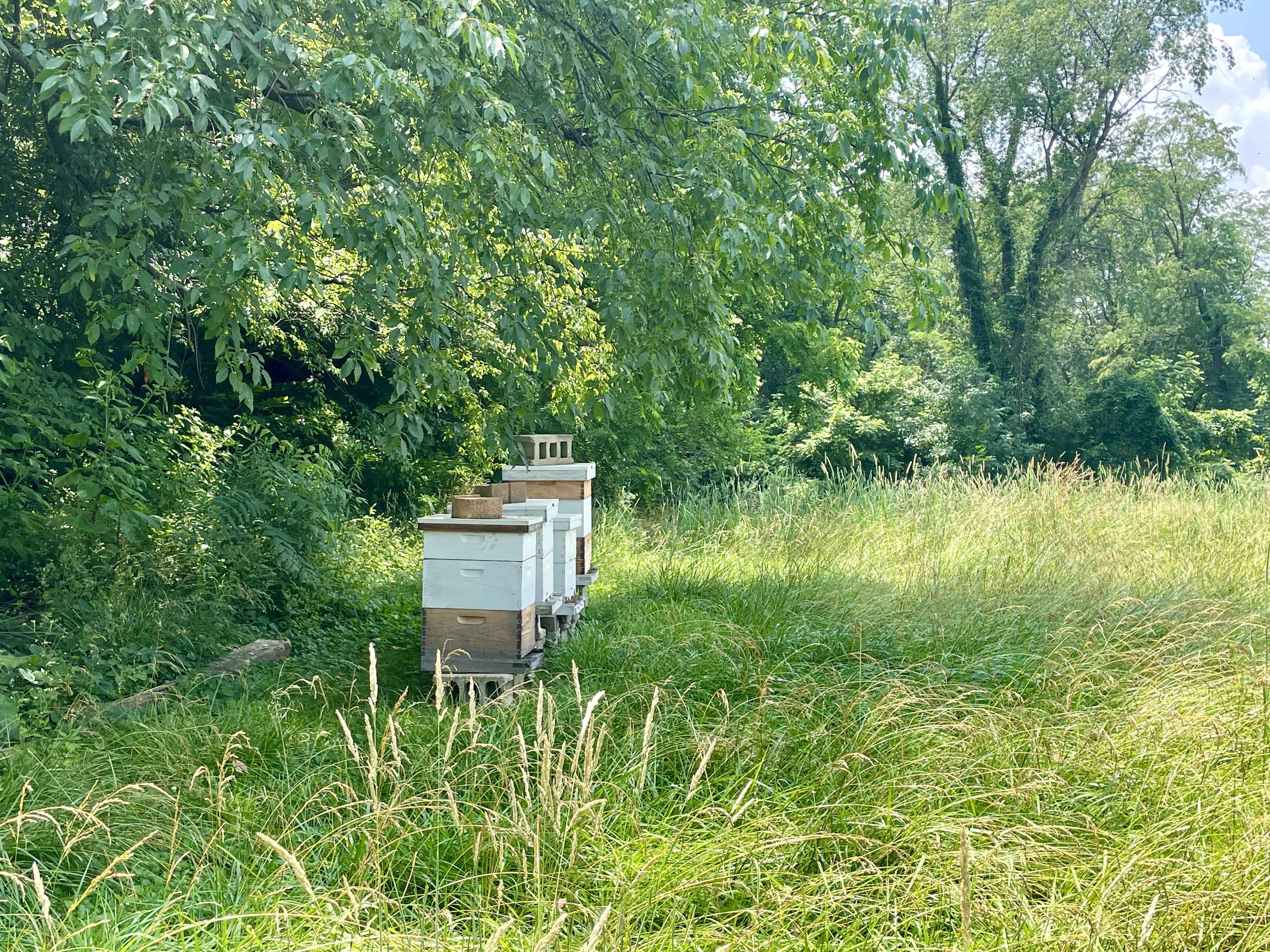
Photo by Sarah Sollinger
Photo by Sarah Sollinger
“I thought to myself: ‘Why did I say I wanted to keep bees, I have never thought that,’” Meng said.
And in a stroke of magic that could only be written in a movie, Jeff was a beekeeper in search of someone to take the hobby off his hands. He had a trailer of tools and two hives of bees that he was ready to hand off to the next keeper.
“My dad died in 2015, and every now and then I’m like, ‘is that my dad?’ Jeff was one of those moments,” said Meng.
Without any concept of beekeeping in practice, Meng googled “bee school.” In another wave of the universe's magic wand, she spent the Saturday of her 37th birthday at Taft Reserve South, at an ECOBA bee school, learning about the intricacies of beekeeping.
A couple months later, once the winter frost wore off, Jeff and a trailer full of bees pulled into her driveway.
Two years, and many reads of “Beekeeping for Dummies,” later, Meng has four hives and more than 80,000 bees.
Just another hive
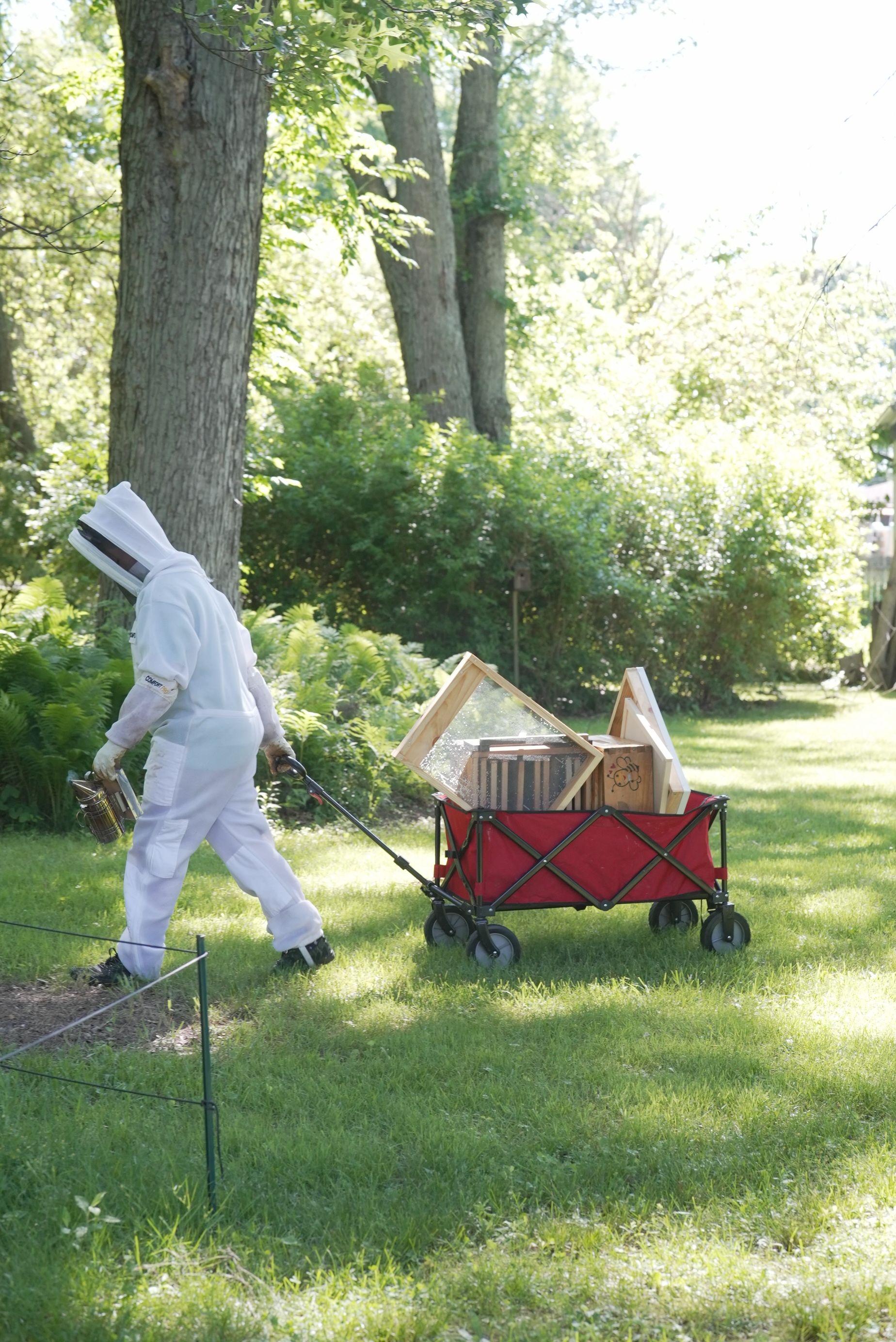
Like any successful hive, ECOBA is a hotspot of information and familiarity. Not unlike a honeybee returning to the hive to direct others to pollen with a waggle dance, each member of ECOBA, sans dancing, passes information to one another to continue to help the bee community thrive. They do it by listening to speakers, and over dinner on the colorful plastic tablecloths.
“There is a joke that if you ask 20 beekeepers a question you will get 20 different answers,” said Meng, “I think that is why the community is so important. You want a variety of perspectives. You want to hear that there is no one right way and you are doing fine. And I think that is so much about life, too. There is no one right way.”
Sarah Sollinger writes for TheReportingProject.org, the nonprofit news organization of Denison University’s Journalism program, which is supported by generous donations from readers. Sign up for The Reporting Project newsletter here.
